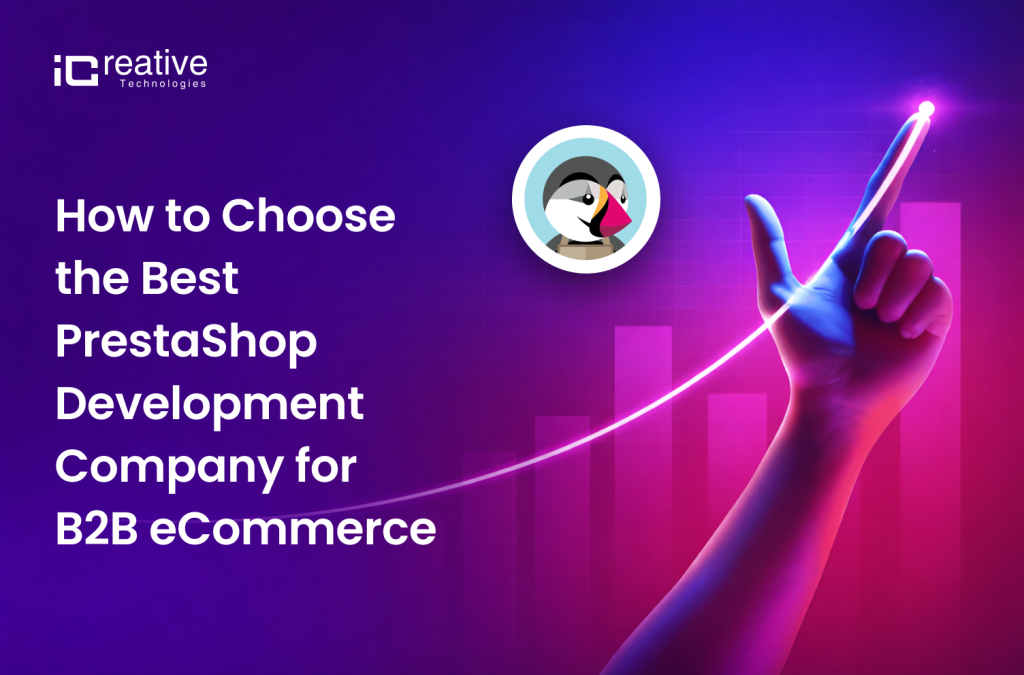For Shopware 6 store owners, staying on top of the latest ecommerce trends isn’t just a good strategy—it’s about staying in business. Your buyers want way more than simple browsing and buying. They want brands that align with their values and deliver truly personalized service.
The merchants who win don’t just follow ecommerce trends—they see them coming and act fast. Shopware 6’s flexible platform gives you everything needed to implement fresh strategies quickly. Your advantage comes from knowing your customers and choosing upgrades that truly improve their shopping experience. Use Shopware 6’s tools strategically to stay ahead of competitors.
Let’s explore how these game-changing ecommerce trends can transform your business.
Circular Commerce: Why Sustainable Shopping is Now a Must-Have
Environmental consciousness has shifted from an optional feature to a business necessity. Modern consumers evaluate every purchase based on sustainability factors. They examine product manufacturing, durability, and disposal methods before making buying decisions.
This shift has birthed the circular economy model, where products don’t end their journey at the customer’s doorstep. Instead, they begin a new chapter through repair services, refurbishment programs, and recycling initiatives. Smart retailers are building entire business ecosystems around product longevity, offering repair workshops, spare parts, and upgrade services that keep customers engaged long after the initial purchase.
Key Advantages of Circular Commerce:
- Enhanced Customer Loyalty: Extended product life cycles create stronger brand relationships as customers appreciate the long-term value
- Improved Brand Reputation: Demonstrating environmental responsibility attracts conscious consumers and builds trust
- New Revenue Streams: Repair services, refurbishment programs, and parts sales create additional income sources
- Resource Conservation: Reduced waste and material consumption lower environmental impact and operational costs
- Competitive Differentiation: Sustainability-focused business models set brands apart in crowded markets
Shopware 6’s Circular Commerce platform’s custom field capabilities make tracking product condition, repair history, and refurbishment status effortless. The robust inventory management tools handle complex return processes, quality checks, and resale workflows while maintaining complete transparency around warranties and product conditions.
Quick Commerce: Same-Day Delivery Becomes the New Normal
Speed has become the new currency of customer satisfaction. Quick commerce, getting products delivered within hours or minutes, started as a pandemic solution but now customers expect it all the time. This fast delivery has expanded beyond groceries and medicine to include electronics, clothes, and specialty products.
Implementing rapid delivery requires reimagining traditional supply chain models. Successful quick commerce businesses create small warehouses in cities to get products closer to customers. These facilities use spaces like old restaurants, basements, or converted offices that regular stores wouldn’t consider.
The customer experience benefits are obvious, but the operational complexity is immense. Inventory allocation across multiple micro-locations, real-time stock synchronization, and dynamic routing optimization become critical success factors. Businesses mastering these challenges create significant competitive moats that are difficult for competitors to replicate.
Advantages of Quick Commerce Implementation:
- Competitive Differentiation: Ultra-fast delivery becomes a powerful selling point against slower competitors
- Increased Customer Satisfaction: Meeting urgent needs builds loyalty and positive brand perception
- Higher Repeat Purchase Rates: Convenience drives customers to return for future orders
- Premium Pricing Opportunities: Speed often justifies higher prices for time-sensitive customers
- Market Share Growth: First-movers in quick commerce often capture significant local market portions
Shopware 6’s Quick Commerce Infrastructure: The platform’s API-first design enables seamless integration with logistics partners for flexible fulfillment. Real-time inventory management prevents stockouts while handling high order volumes during peak demand periods. Built-in scalability ensures consistent performance as operations grow.
Payment Revolution: Beyond the Credit Card Era
The traditional credit card is losing its dominance as payment preferences diversify rapidly. Buy Now, Pay Later services appeal to budget-conscious consumers, while cryptocurrency adoption grows among tech-savvy demographics. Digital wallets provide frictionless transactions that reduce cart abandonment rates.
This payment diversification isn’t just about customer preference—it’s about accessibility and inclusion. BNPL services make higher-value purchases attainable for customers who might otherwise wait or shop elsewhere. Cryptocurrency payments attract international customers who face high conversion fees with traditional methods.
Key Benefits of Payment Method Diversification:
- Reduced Cart Abandonment: Offering preferred payment options decreases checkout friction
- Increased Conversion Rates: Multiple payment choices accommodate different customer preferences and financial situations
- Higher Average Order Values: BNPL services encourage larger purchases by spreading payment burden
- Enhanced Customer Satisfaction: Flexibility in payment creates positive shopping experiences
- Access to New Markets: Cryptocurrency and regional payment methods open international opportunities
Shopware 6’s Payment Flexibility: The Shopware 6 Store offers extensive enabling BNPL services, cryptocurrency, and digital wallet integration. The robust Shopware 6 API system connects any payment service provider while maintaining security and user experience standards throughout the checkout process.
Adaptive Pricing: Smart Pricing Changes Everything
AI technology has transformed how companies price their products, letting them adjust costs instantly based on what customers want, what competitors charge, how much stock they have, and buying patterns. This flexible approach helps boost profits while staying competitive, but businesses must handle it carefully to keep customers happy.
Good adaptive pricing puts fairness and openness first. Shoppers accept changing prices when they know why—busy seasons, low stock, or sales periods. But sudden price jumps without explanation can hurt trust and damage your brand’s reputation.
The technology behind adaptive pricing analyzes vast datasets to identify optimal price points for different customer segments and market conditions. Machine learning algorithms continuously refine these recommendations, learning from sales performance and customer responses to previous pricing changes.
Key Benefits of Adaptive Pricing:
- Maximized Revenue Potential: Smart pricing technology helps you earn more by automatically finding the best prices when customers want to buy most, while keeping you competitive in the market.
- Improved Inventory Turnover: Clever price changes help you sell products that aren’t moving quickly, freeing up space and reducing the money tied up in storage.
- Enhanced Market Responsiveness: Instant price adjustments based on competitor analysis ensure competitive positioning without manual monitoring.
Shopware 6’s Pricing Intelligence: The flexible pricing system handles dynamic strategies with custom rules and automatic changes. Built-in analytics show detailed customer behavior and sales data, helping you make smarter pricing decisions. Third-party AI service integration is seamless through the Shopware 6 API architecture.
AI-Powered Supply Chain Management: AI is Making Supply Chains Smarter
AI integration in supply chain management represents one of the most significant operational advances in recent years. Beyond simple inventory tracking, intelligent systems predict demand patterns, optimize shipping routes, and identify potential disruptions before they impact customers.
These systems excel at pattern recognition, identifying subtle correlations between market conditions, seasonal factors, and consumer behavior that human analysts might miss. For example, AI might notice that certain products often sell together, showing new trends early. This helps adjust inventory before items run out of stock.
The predictive features also improve delivery planning. AI looks at traffic, weather, and when customers prefer deliveries to create routes that cut costs while keeping customers happy.
Benefits of AI-Powered Supply Chain Management:
- Predictive Demand Forecasting: Machine learning algorithms analyze data patterns to predict demand accurately, reducing stockouts and overstock situations
- Optimized Logistics and Delivery: AI-driven route optimization reduces shipping costs and improves delivery times
- Proactive Risk Management: Early detection of supply chain disruptions enables contingency planning before issues impact operations
Shopware 6’s AI-Ready Architecture: Modern infrastructure supports AI integration through extensive API ecosystems. Real-time data processing enables accurate demand forecasting while custom Shopware 6 plugins integrate machine learning algorithms. Scalable infrastructure ensures AI-powered tools perform reliably as business grows.
Conclusion
The ecommerce landscape of 2025 rewards businesses that balance innovation with customer focus. These ecommerce trends offer clear pathways to stronger customer relationships and competitive advantage for Shopware 6 merchants ready to adapt. Success requires understanding which ecommerce trends fit your business and implementing them strategically. You don’t need to adopt everything at once—focus on what matters most to your customers and market.
For companies seeking to implement these advanced ecommerce trends, partnering with experienced development teams becomes essential. Shopware development specialists who understand both the platform’s capabilities and emerging market trends can help transform these opportunities into results.
Reach out to us, iCreative Technologies bring the technical expertise needed to navigate this complex landscape, helping businesses implement trend-driven solutions that deliver measurable growth.




